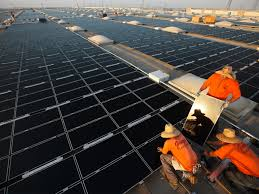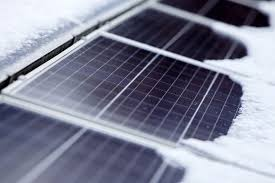
Boost Your Confidence with Photo Editing Techniques that Flatter
August 26, 2024
The Best Plants for Sunny Windowsills in Small Pots: A Guide for Green Thumbs in Confined Spaces
August 29, 2024The solar energy sector has experienced significant growth in recent years. But despite there being more familiarity with solar panels, there are a number of myths that still circulate.
Myth 1: Solar panels don’t work in cold or cloudy climates
Solar panels work efficiently in a range of different climates. Although they do perform at their peak with direct sunlight, they are able to harness the sun’s power on cloudy days as well.
Myth 2: Solar panels are too costly
As technologies have advanced and competition in the solar energy industry has increased, consumers now face significantly lower costs when purchasing and installing a solar panel system.
According to the Energy Saving Trust, the average solar panel system on a domestic property costs £7,000. This represents a fall in price by around 90% over the last 10 years.
Myth 3: Maintaining solar panels is difficult
While it is recommended to ensure that your solar panels are kept clean of debris, dirt and dust, there aren’t any elaborate maintenance tasks that you’ll need to complete. It is advantageous to choose solar panel models that come with a good warranty.
Additionally, when looking for an installer of solar panels Cheltenham, such as https://gsmlimited.com, you should seek to understand whether their installation work is also covered by a warranty.
Myth 4: Solar panels don’t generate much energy
Most households and businesses can benefit from a solar panel system, as they can be tailored to align with your energy usage habits. As solar technology has advanced, we’re now seeing the manufacture of increasingly efficient solar panels which are able to generate more power in cloudier, more overcast conditions.
Myth 5: Manufacturing processes mean that solar energy isn’t green
Although the installation, transportation and manufacturing processes do mean that solar energy has a carbon footprint, the long-term benefits of solar panels mean that most systems have an energy payback time of under four years.
There are many misconceptions about solar energy that persist. But as we all need to contribute to a much more sustainable future, addressing these inaccuracies is becoming even more important.





